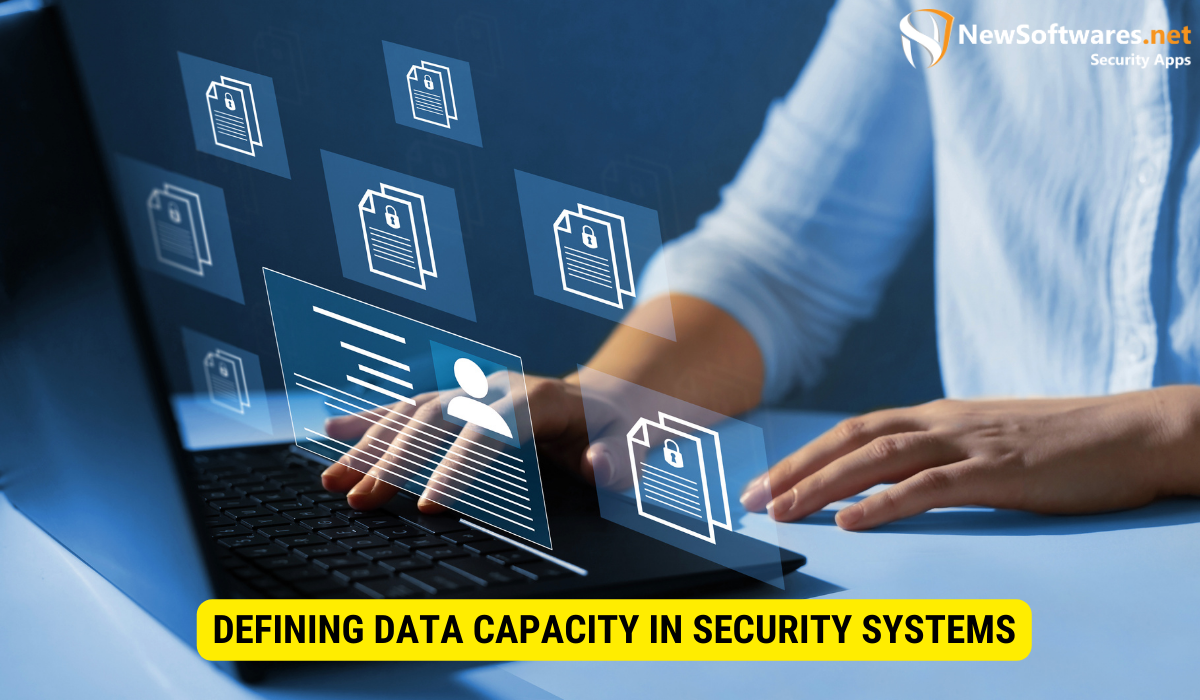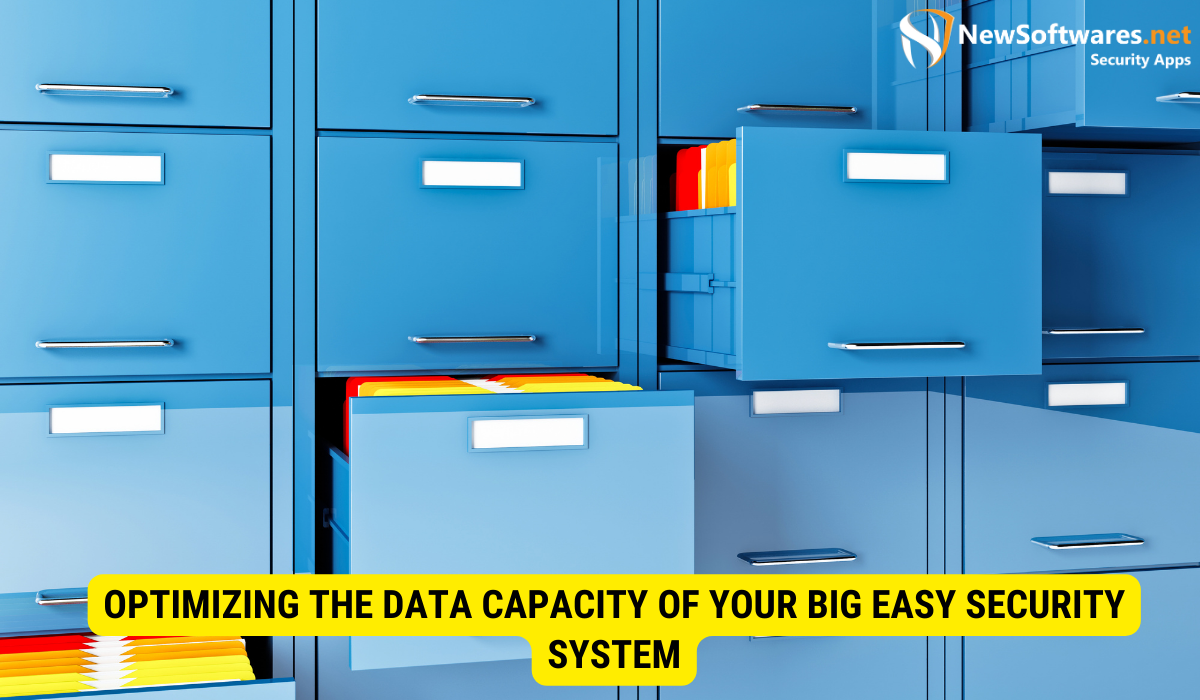Data capacity in the Big Easy Security System refers to its ability to store, process, and manage data efficiently. It impacts security efficiency and scalability. To optimize it, consider best practices like reviewing storage needs and utilizing efficient data compression.
The Big Easy Security System is a cutting-edge security solution that utilizes advanced technology to keep your property safe and secure. One important aspect of this system is its data capacity. Together, we will dive deep into the world of data capacity, examining its definition, role in security systems, and the key factors that affect it. We will then take a closer look at the Big Easy Security System itself, exploring its core features and how it utilizes data. Next, we will analyze the data capacity of the system, including data storage and management, as well as its data processing capabilities. Moving on, we will discuss the implications of data capacity on system performance, such as its impact on security efficiency and system scalability. Finally, we will provide tips on optimizing the data capacity of your Big Easy Security System, including best practices for managing data capacity and future trends to keep an eye on. Let’s begin our journey into the fascinating world of data capacity.
Defining Data Capacity in Security Systems

Data capacity refers to the maximum amount of data that a security system can store, process, and manage. It is a crucial aspect of any security system as it determines how much information can be collected, analyzed, and utilized to protect your property. The data capacity of a system is often measured in terms of storage capacity and processing speed. Understanding data capacity is essential to ensure that your security system can handle the volume and complexity of data it receives.
The Role of Data Capacity in Security
Data capacity plays a significant role in the overall effectiveness of a security system. In today’s technology-driven world, security systems generate vast amounts of data, including video footage, sensor readings, and access logs. This data needs to be stored securely and quickly accessed when needed. A system with insufficient data capacity may struggle to store and process all the incoming information, leading to delays in retrieving crucial data or even data loss. Thus, data capacity is vital for a security system to perform its intended function of protecting your property.
Key Factors Affecting Data Capacity
Several key factors can impact the data capacity of a security system. Firstly, the physical storage space available in the system, including hard drives or cloud storage, determines the maximum amount of data that can be stored. Secondly, the processing power of the system affects its ability to handle large volumes of data and perform complex calculations. Additionally, the efficiency of data compression algorithms used by the system can significantly impact data capacity. Lastly, the network bandwidth available for transferring data both internally and externally also influences the system’s data capacity.
The Big Easy Security System: An Overview
The Big Easy Security System is an advanced security solution intended to provide comprehensive protection for properties of all sizes. This intelligent system combines state-of-the-art technology with user-friendly features to deliver top-notch security. Let’s explore the core features of the Big Easy Security System.
Core Features of the Big Easy Security System
The Big Easy Security System comes equipped with a range of features that make it a powerful and reliable security solution. Firstly, it offers high-definition video surveillance, allowing you to monitor your property with crystal-clear clarity. The system also includes motion detection sensors that can trigger alerts and recordings whenever any suspicious activity is detected. In addition, it offers remote access, enabling you to screen your property from anywhere using your smartphone or computer. Furthermore, the system is equipped with advanced access control features, letting you to manage and monitor access to your property with ease. Lastly, the Big Easy Security System prioritizes cybersecurity, ensuring that your data remains protected at all times.
How the Big Easy Security System Utilizes Data
The Big Easy Security System leverages its robust data capacity to enhance its performance and provide optimal security. The system collects and analyzes a vast amount of data in real-time, allowing it to detect and respond to potential threats swiftly. By utilizing advanced algorithms and machine learning abilities, the system can recognize patterns and anomalies in the data, enabling it to differentiate between normal activities and suspicious behavior. This proactive approach enhances the system’s ability to prevent security breaches and protect your property effectively.
Analyzing the Data Capacity of the Big Easy Security System
In this section, we will delve deeper into the data capacity of the Big Easy Security System, examining both its data storage and management capabilities, as well as its data processing capabilities.
Data Storage and Management in the Big Easy System
The Big Easy Security System employs state-of-the-art storage solutions to guarantee that your data is securely stored and readily accessible when needed. The system utilizes high-capacity hard drives or cloud storage to accommodate large amounts of data. It also incorporates redundant storage systems to safeguard data integrity and prevent data loss in case of hardware failures. Additionally, the system utilizes efficient data management techniques to organize and retrieve data efficiently, making it easy to locate specific information in a timely manner.
Data Processing Capabilities of the Big Easy System
In addition to its impressive data storage capabilities, the Big Easy Security System boasts powerful data processing capabilities. The system employs high-performance processors and sophisticated algorithms to process and analyze large volumes of data in real-time. This enables the system to quickly identify potential threats and generate timely alerts. The efficient data processing capabilities of the Big Easy Security System contribute to its overall effectiveness in safeguarding your property.
Implications of Data Capacity on System Performance
The data capacity of a security system has significant implications for its overall performance and effectiveness. Let’s explore two key aspects affected by data capacity: security efficiency and system scalability.
The Impact of Data Capacity on Security Efficiency
A security system with ample data capacity is more likely to operate efficiently and effectively in detecting and mitigating security threats. Sufficient data capacity enables the system to capture and process a larger volume of data, increasing the chances of identifying suspicious activities accurately. Moreover, a system with high data capacity can store historical data for longer periods, allowing for comprehensive analysis and investigation, if required. Thus, a well-designed security system with robust data capacity can significantly enhance security efficiency.
Data Capacity and System Scalability
System scalability states to the ability of a security system to accommodate growth and adapt to changing needs over time. Data capacity plays a crucial role in determining the scalability of a system. As the volume and complexity of data generated by a security system increase, the system should have the capacity to handle the additional data without compromising performance. A system with limited data capacity may face challenges when expanding or upgrading, potentially leading to decreased functionality or the need for costly hardware replacements. Therefore, ensuring adequate data capacity is essential for long-term system scalability.
Optimizing the Data Capacity of Your Big Easy Security System

To get the most out of your Big Easy Security System, it is important to optimize its data capacity. Here are some best practices to consider:
Best Practices for Managing Data Capacity
- Regularly review and analyze your data storage needs to ensure adequate capacity.
- Utilize efficient data compression techniques to reduce the storage footprint.
- Implement data lifecycle management strategies to optimize storage usage.
- Consider leveraging cloud storage options for scalability and flexibility.
- Ensure proper monitoring and maintenance of storage hardware to prevent failures.
Future Trends in Data Capacity and Security Systems
The field of security systems is continuously evolving, and data capacity is expected to play an even more significant role in the future. As technology advances, security systems will generate even larger volumes of data. In response to this trend, manufacturers will continue to develop systems with increased data storage and processing capabilities. Additionally, advancements in (AI) artificial intelligence and machine learning will enable security systems to extract valuable insights from the data, further enhancing their ability to protect properties effectively.
Key Takeaways
- Data capacity is crucial for the performance and effectiveness of a security system.
- The Big Easy Security System combines advanced technology with user-friendly features.
- Data storage and management, as well as data processing, are essential components of data capacity.
- Data capacity impacts security efficiency and system scalability.
- Optimizing data capacity involves best practices for managing storage and monitoring future trends.
FAQs
Why is data capacity important in a security system?
Data capacity is important in a security system as it determines how much information can be collected, stored, and analyzed to protect a property effectively. Insufficient data capacity can lead to delays or loss of crucial data, compromising the overall security of a system.
How does the Big Easy Security System utilize data?
The Big Easy Security System collects and analyzes data in real-time to notice and respond to potential threats. By using advanced algorithms and machine learning capabilities, the system can identify patterns and anomalies, enhancing its ability to prevent security breaches and protect properties.
What factors affect the data capacity of a security system?
Key factors that affect the data capacity of a security system include physical storage space, processing power, data compression algorithms, and network bandwidth.
What are the implications of data capacity on system performance?
Data capacity has implications on security efficiency and system scalability. Sufficient data capacity improves security efficiency by allowing for accurate threat detection and comprehensive analysis. Moreover, adequate data capacity ensures long-term system scalability without compromising performance.
How can I optimize the data capacity of my Big Easy Security System?
To optimize the data capacity of your Big Easy Security System, consider implementing best practices for managing data capacity, such as reviewing storage needs, utilizing efficient data compression, implementing data lifecycle management strategies, leveraging cloud storage options, and ensuring proper monitoring and maintenance of storage hardware.
Conclusion
In conclusion, understanding the data capacity of the Big Easy Security System is essential for maximizing its effectiveness in protecting your property. We have explored the definition and role of data capacity in security systems, as well as the key factors that affect it. We have also taken a detailed look at the Big Easy Security System, its core features, and how it utilizes data. Additionally, we have examined the data capacity of the system, its implications on performance, and tips for optimizing data capacity. By following best practices and keeping an eye on future trends, you can ensure that your Big Easy Security System remains at the forefront of security technology, providing you with peace of mind and comprehensive protection.
